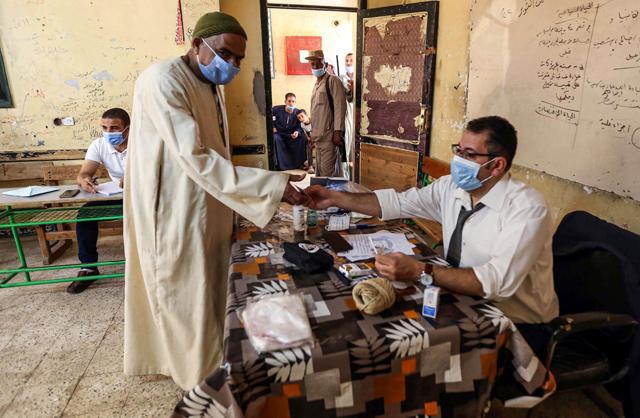- International News
- Sun-2020-10-25 | 02:31 pm

Egyptians voted on Saturday in a parliamentary election in which there was little doubt of a sweeping victory for supporters of President Abdel Fattah Al Sisi.
Some 63 million voters out of Egypt's more than 100 million people are eligible to elect 568 of the 596 lawmakers in the lower house, widely seen as a rubber-stamp body for executive policies.
The elections will be held in two phases, with the first covering 14 provinces on Saturday and Sunday. The second, on November 7-8, will cover 13 provinces including the capital Cairo.
On Saturday morning, mini-buses were seen driving around parts of Giza province, south of Cairo, bearing photos and banners of some candidates to draw support as voters trickled into polling stations, an AFP reporter said.
Giant billboards and banners have sprung up across the bustling capital Cairo and elsewhere urging Egyptians to vote, while some candidates have released online music video clips to draw support.
Many of the candidates also stood for election five years ago in a political landscape marked by the presence of dozens of parties.
The new parliament will be the second to convene under Sisi, who took office in 2014.
Run-offs will be held in November, and final results are to be announced in December.
The parliament vote is the second to be held since the start of the COVID-19 pandemic. Egypt has recorded more than 105,000 cases including nearly 6,200 deaths.
Over 4,000 candidates, believed to be mostly pro-government, are competing for 284 of the 568 seats reserved for individuals. Eight party lists are running for the remaining 284 seats.
Among the top contenders is a political coalition known as the Unified National List, led by the pro-government Mostakbal Watan, or Nation’s Future Party.
The party, including top businessmen and public figures, has grown since 2014 to become one of Egypt’s dominant political forces.
It swept the August senate elections, and its leader Abdelwahab Abdelrazek was named the upper house’s head last Sunday.
The reinstatement of the upper house — which had been abolished after Morsi’s ouster — was among constitutional amendments which included potentially extending Sisi’s rule until 2030.













